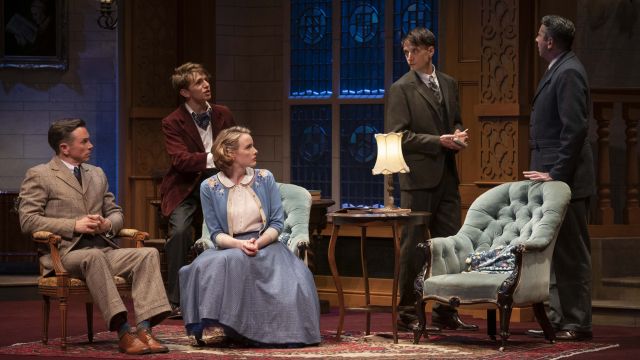The Mousetrap
‘The Mousetrap… ‘tis a knavish piece of work, but what o’ that?’ said Shakespeare’s Hamlet, yet long after Agatha Christie co-opted that title to the play of one of her short stories, it’s become one of the most recognisable shows in London’s West End, and is about to notch up its 29,000th performance.
This seventieth anniversary touring production of the play – no, not a musical – is bringing a nostalgic perspective of 1950s England to Australian theatres, having opened in Sydney before moving to Brisbane and now here in Adelaide, ahead of a Melbourne season and many other stops on its national tour.
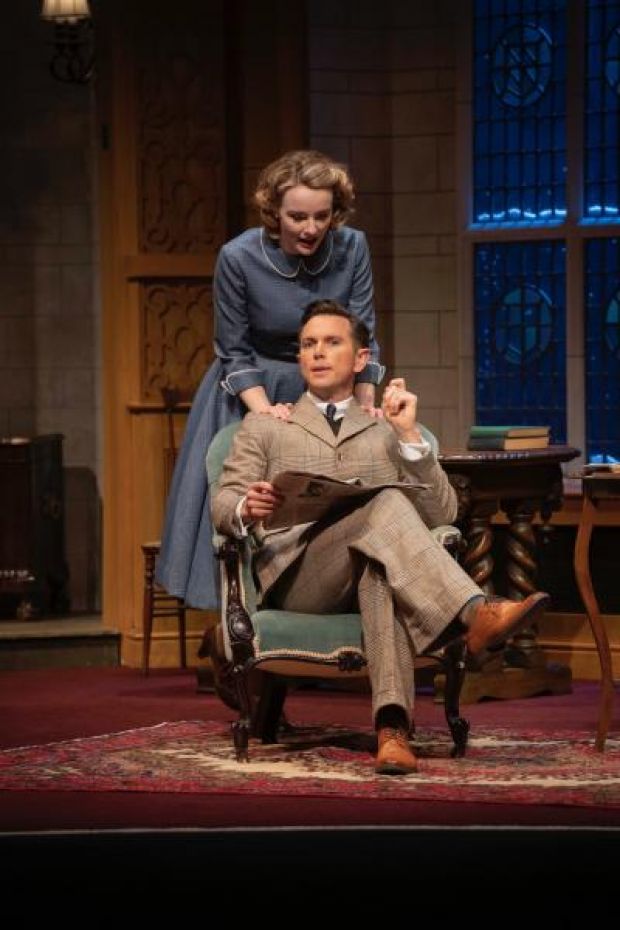
Going into the play, it was difficult to see how director Robyn Nevin could breathe new life into Christie’s stiff upper lip dialogue. We’re most certainly not in 21st century Adelaide when the curtain rises on a magnificent wood-panelled room, lit in warm orange tones, with an old-fashioned wireless calmly setting the scene through its ‘received pronunciation’ radio broadcast. Yet any thought of a gentle story unfolding is whisked away with a rapid introduction of Monkswell Manor Guest House and its owners, Mollie and Giles Ralston. Then before we’re caught up with the setting, the guests begin to arrive. Colour-coded like Cluedo pieces and sprinkled with snow, we meet the foppish manchild Christopher Wren, then the arrogant Mrs Boyle and surprisingly relaxed Major Metcalf. Shortly after these three have snorted, snooted and muted, Miss Casewell arrives with a dominant air of mystery, before the final (and unexpected) guest, Mr Paravicini, who looks like a dark-alley Poirot, his continental accent and attitude clearly making everyone else suspicious. It’s 1950s values with 2022 pacing.
The talented ensemble obfuscate each other with questions responded to with questions, only lightly scratching the caricatures until the dramatic arrival of Detective Sergeant Trotter, here to investigate the connection between a London murder and this guest house. Tom Conroy’s Trotter scratches the others until they bleed, playing up the class differences with a constant smirk. Presuming his authority through his notebook and pen, he cuts through the assumed nobility of Geraldine Turner’s Boyle, who, in turn, is brilliant in ensuring everyone in the theatre dislikes her ugly contempt, yet garners some sympathy when she’s forced to accept revelations of her past. He doesn’t even hold back on the hosts, Anna O’Byrne’s Mollie and Alex Rathgeber’s Giles. O’Byrne is frightfully proper as a new wife trying to hold her own, and plays well with Rathgeber’s English gentleman, his accent and masculinity spot on for the time and yet not overbearing seventy years on.
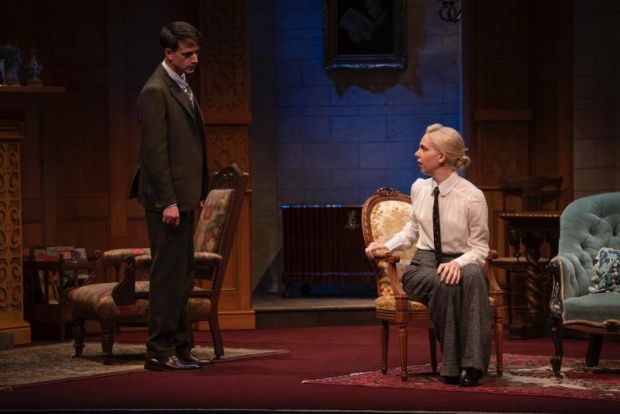
And that’s part of the success of this production – Nevin hasn’t fundamentally changed the characters (and given the play’s historical importance, she probably couldn’t), but the post-war attitudes are underplayed enough so that today’s friction doesn’t interfere with the narrative. Indeed, Laurence Boxhall’s Wren works better today – his childlike behaviours much more understood as from trauma, rather than being weird or even insane. Boxhall breathes a lot of humour into his tragedy as if it were Shakespearean comic relief. He can both defuse and ignite the tension with a nursey rhyme reference, a laugh – or even just a glance.
Adam Murphy as Major Metcalf creates more of an enigma than the retired military archetype. He’s quietly intelligent, just, and observant – which in this context, makes him a puzzle to be solved. Charlotte Friels is fantastic as Miss Casewell, a character as tightly buttoned up as her mid-century pantsuit, revealing very little beyond her fierce comebacks, yet Friels commands just as much from what she leaves unsaid. Gerry Connolly’s Paravicini, as a man who ‘plays the markets’, gives him enough mystery, but his constants of dialogue that feels too accommodating, and a grin that’s too Cheshire Cat, seem to be at odds with building conflict and confusion.
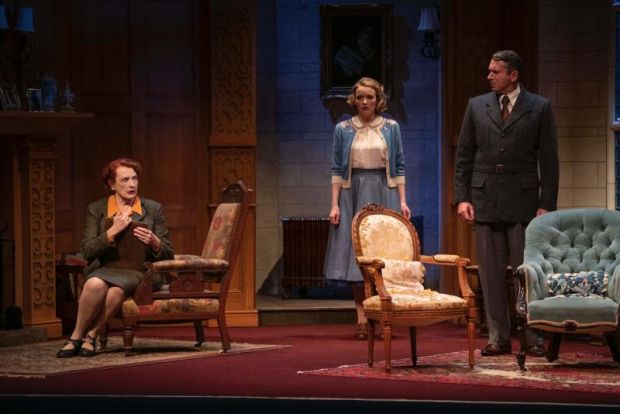
Of course, everyone is a suspect – all arriving in a heavy overcoat, light-coloured scarf, and felt hat that match the description of the murderer, and Christie’s plot knows exactly how and when to twist around itself, playing on our tendency to think we’re smarter than our audience neighbours. The story is neither far-fetched nor unpredictable, and despite the period, it doesn’t deal with anything too unfamiliar. Christie’s work has rarely been out of fashion, but with a current revival of her novels in movies (Branagh’s Death on the Nile and Murder on the Orient Express) and its streaming service derivatives (such as Rian Johnson’s Knives Out series), we’re well-versed in the form and structure of the period murder-mystery.
Isabel Hudson’s costumes are excellent, and her adaptation of the original set design for Australian theatres exudes the age. Trudy Dalgliesh’s lighting is golden-hour cosy for most of the time, but it’s her beautiful blue shadows that excite.
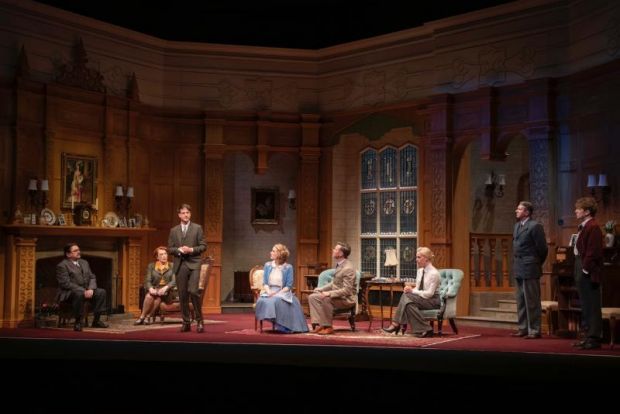
The ‘longest running play in the world’ will continue to be a ‘must-do’ on the London tourist trail but this Australian production is a jolly marvellous show on our shores. On its 1952 West End opening night, Richard Attenborough was the drawcard actor, but as The Guardian’s Stephen Moss wrote about The Mousetrap, ‘the play and its author are the stars’.
Mark Wickett
Photographer: Brian Geach
Subscribe to our E-Newsletter, buy our latest print edition or find a Performing Arts book at Book Nook.

